All products featured are independently chosen by us. However, SoundGuys may receive a commission on orders placed through its retail links. See our ethics statement.
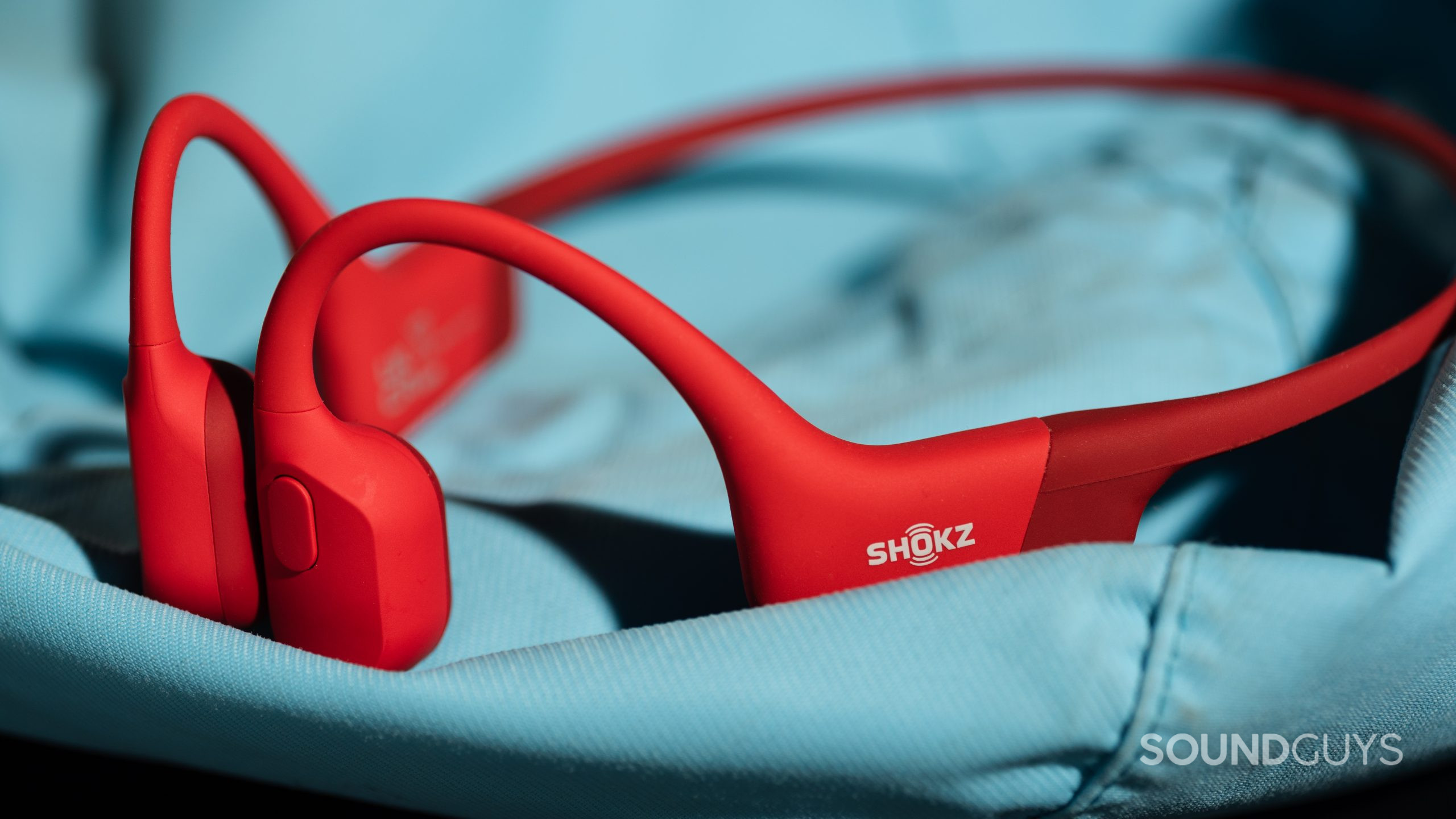
Shokz OpenRun review
August 27, 2024
Shokz OpenRun
Shokz corners the bone conduction headphones market with a limited line accommodating professionals, athletes, and general listeners. The Shokz OpenRun look nearly identical to the company’s famed Aeropex headphones but adds new features like fast charging and better battery life. We like the OpenRun because they’re safety-oriented and don’t clog up your ears. Not only does a fit like this keep you aware of what’s happening around you, but it also means you won’t encounter an ear infection from the headset.
After two weeks with the Shokz OpenRun we’re excited to share all that’s great about these headphones and what could be better. Let’s see if these headphones from Shokz fits your lifestyle.
Editor’s note: this Shokz OpenRun review was updated on August 27, 2024, with the latest alternative options.
Outdoor athletes will appreciate how the OpenRun keeps their ears open to passing cars while also relaying music to motivate them through workouts. Those with in-the-ear (ITE) or invisible (IIC) hearing aids can use this pair of bone conduction headphones since it bypasses the outer ear. Any listener who has an aversion to sticking things in their ears will like how this pair of headphones keeps the ears completely unoccluded.
What’s it like to use Shokz OpenRun?
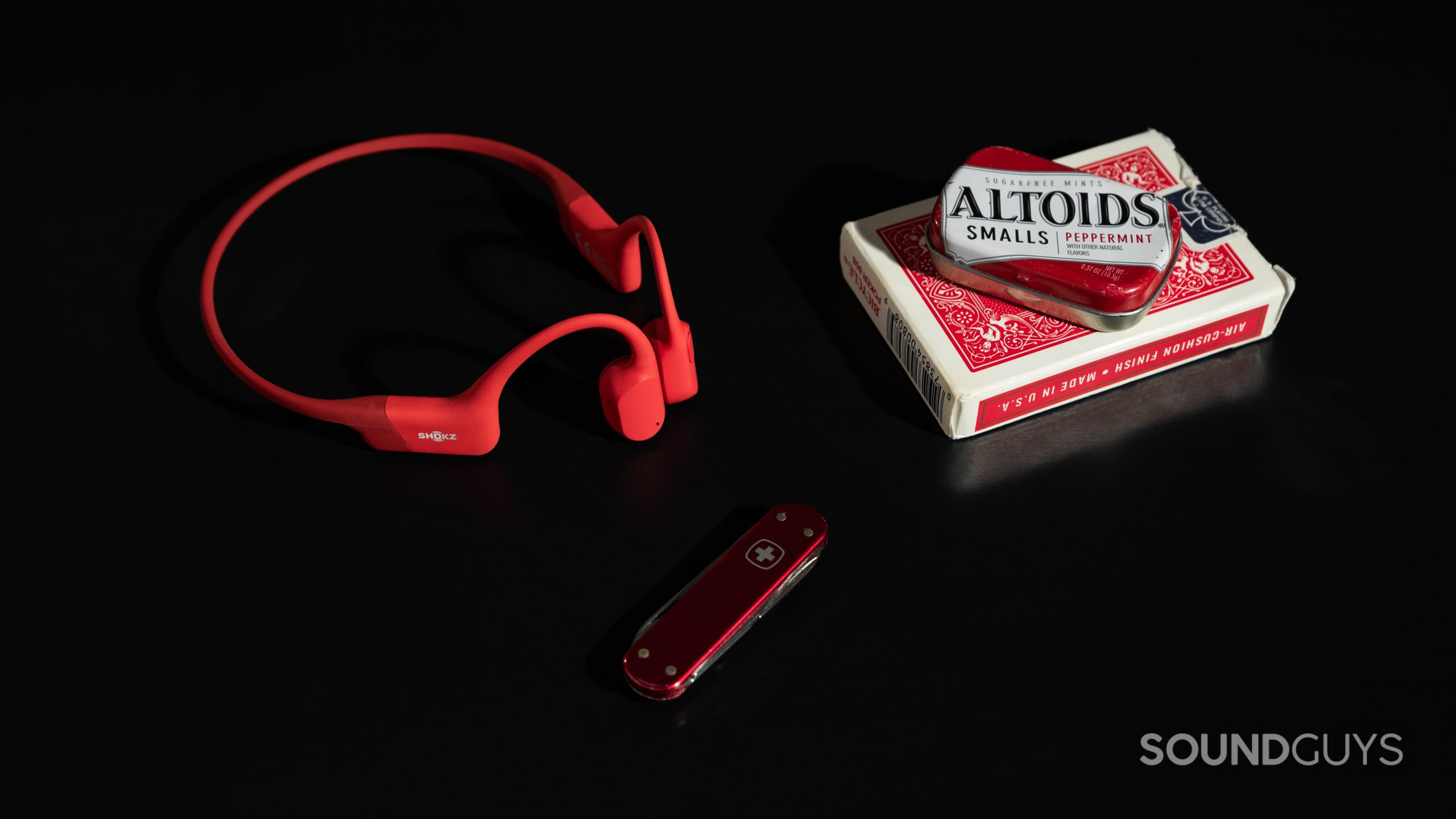
Using the Shokz OpenRun is similar to other Bluetooth headphones; you must manually pair it to your phone to get started. How you wear the OpenRun differentiates it from your standard wireless headphones and earbuds.
At first glance, you could easily mistake the OpenRun for typical neckband earbuds where you place the rounded pieces into your ear canals. If you do this, you’ll be uncomfortable, and your music won’t sound good. To wear these bone conduction headphones properly, you need to rest the earbud-shaped pieces on your cheekbones, just in front of your ears. A gentle degree of headband tension keeps the OpenRun in place. With the malleable band that connects the earpieces and runs behind your head, this Shokz headset should suit most noggin shapes.
For general wear, I find the OpenRun comfortable, but things get a bit tricky when I don my glasses. Adding a mask to the equation makes for an uncomfortable affair that would likely be worse if I grew out my hair. Another issue with bone conduction headphones generally is that placement greatly affects audio clarity, and I rarely nail it on the first try. When I do get both sound pieces aligned on my cheekbones, they move out of place when I talk or chew, which means sound quality is ultimately inconsistent. Things can go from “good” to “okay” to “bad” and back to “good” all within a minute.
Shokz includes a drawstring travel pouch, a sports headband, a magnetic two-pin charging cable, and the OpenRun headset.
How do bone conduction headphones work?
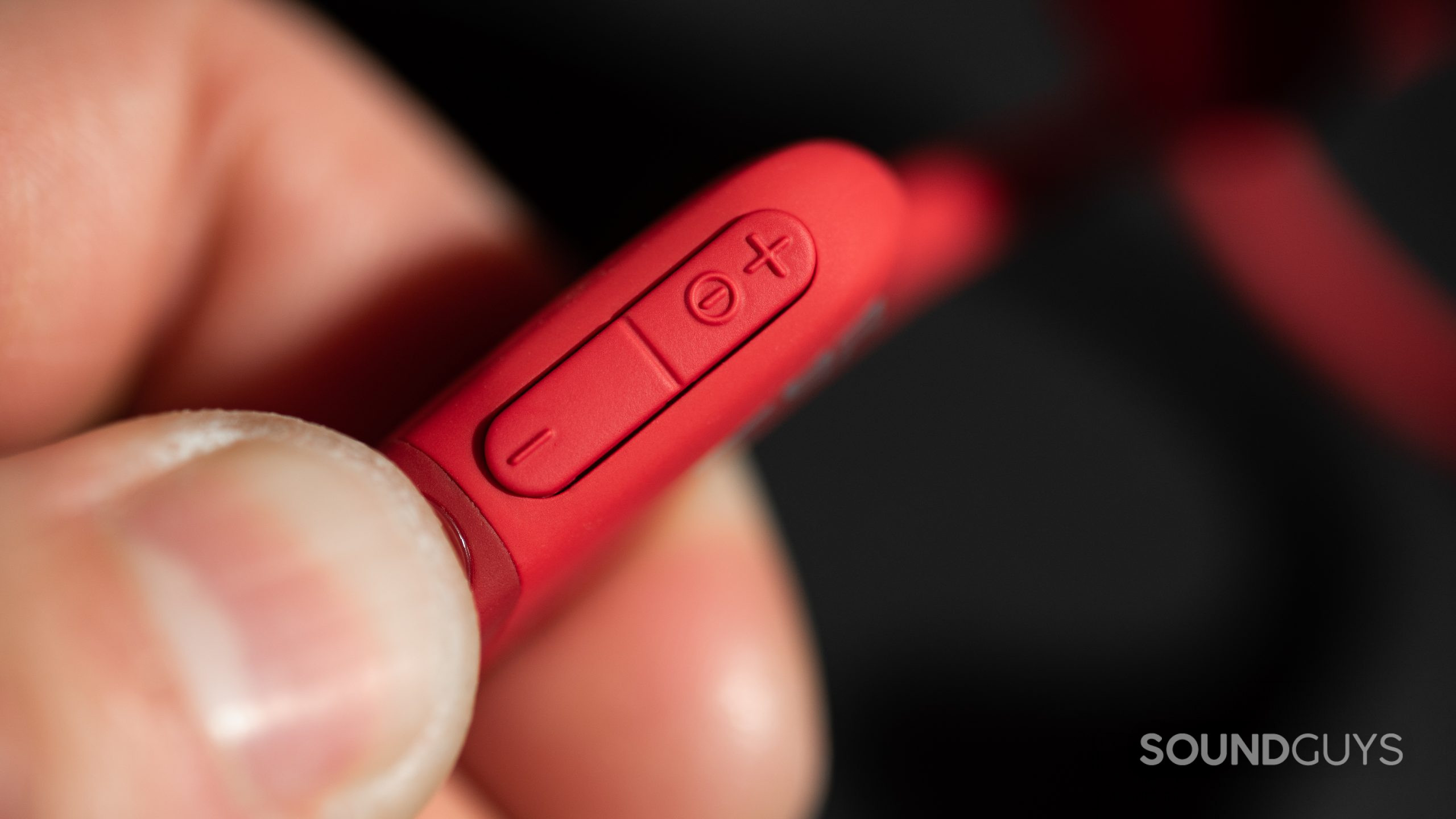
If you’ve never encountered bone conduction headphones, they can be a small marvel. You wear the OpenRun on your cheekbones because the headset sends sound waves to your inner ear by vibrating the bones in your skull. Standard headsets use tiny speakers to move soundwaves through the ear and down your ear canals. Bone conduction may seem scary, but the technology dates back to the 1400s and like Bluetooth, it’s harmless.
How do you control the Shokz OpenRun?
There are just three buttons on the OpenRun that control power/volume up, volume down, and multi-function commands. Like their older sibling, the OpenRun play a loud beep when you press any of the buttons. Since there’s no mobile app, you can’t disable this tone. It’s not a dealbreaker, but adjusting the volume with consecutive clicks is annoying.
Take a look at the table below to understand how to control the OpenRun for playback and calls.
| ONE PRESS | TWO PRESSES | THREE PRESSES | PRESS AND HOLD (2s) | PRESS AND HOLD (3s) | |
|---|---|---|---|---|---|
MULTI-FUNCTION | ONE PRESS
| TWO PRESSES
| THREE PRESSES
| PRESS AND HOLD (2s)
| PRESS AND HOLD (3s) |
VOLUME UP | ONE PRESS
| TWO PRESSES | THREE PRESSES | PRESS AND HOLD (2s)
| PRESS AND HOLD (3s)
|
VOLUME DOWN | ONE PRESS
| TWO PRESSES | THREE PRESSES | PRESS AND HOLD (2s) | PRESS AND HOLD (3s) |
VOLUME UP/DOWN TOGETHER | ONE PRESS
| TWO PRESSES | THREE PRESSES | PRESS AND HOLD (2s) | PRESS AND HOLD (3s)
|
Are the Shokz OpenRun good for working out?
Most athletes can see the benefit of bone conduction headphones, especially those who exercise outside. Since your ears are open, you can remain fully aware of your surroundings. These headphones are solid for runners and bike commuters. They can even be a great training companion for rock climbers thanks to the IP67 dust and water resistance rating.
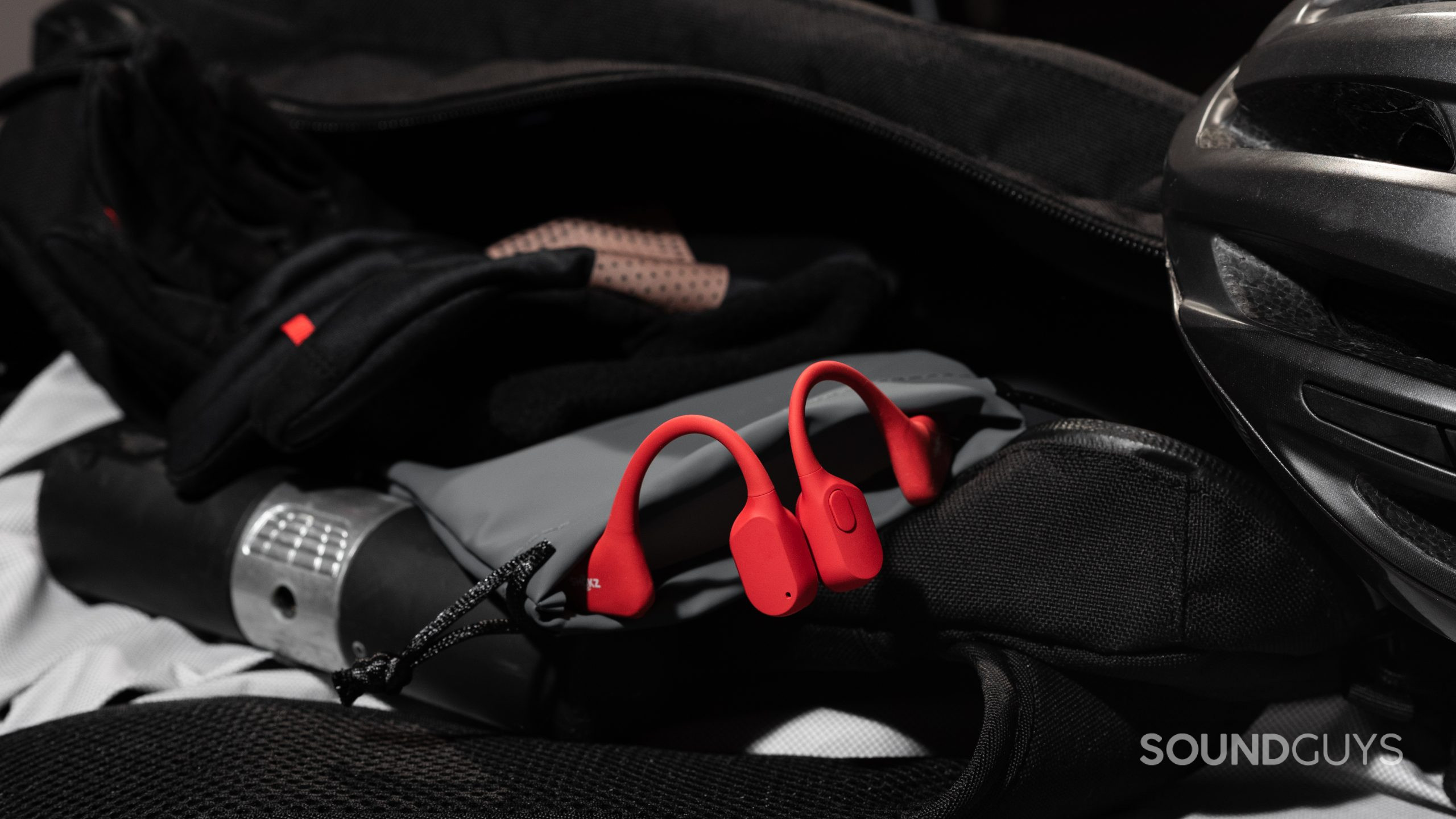
The OpenRun allow me to hear traffic and pedestrians when biking, and unlike a portable speaker, my music won’t disturb others. Unfortunately, it takes a minute to get a good fit when wearing a helmet. When I go to put my helmet on, it will displace the OpenRun band. To avoid this, I’ve taken to securing my helmet before the OpenRun. The headphones fit perfectly fine when running, but it can be difficult to wear them with a thick beanie, which many need for winter runs. I find bone conduction headphones work best with indoor bouldering, a type of rock climbing. They rarely interfere with my movement and stay in place even when I fall.
Those who do a lot of weight lifting may not like the Shokz OpenRun because the band slides forward and off your head when you lie on your back. This is an issue when I do bench presses or “skull crushers.” However, the OpenRun are highly durable, with a nice rubberized exterior that keeps them in place in most other situations.
How do the Shokz OpenRun connect?
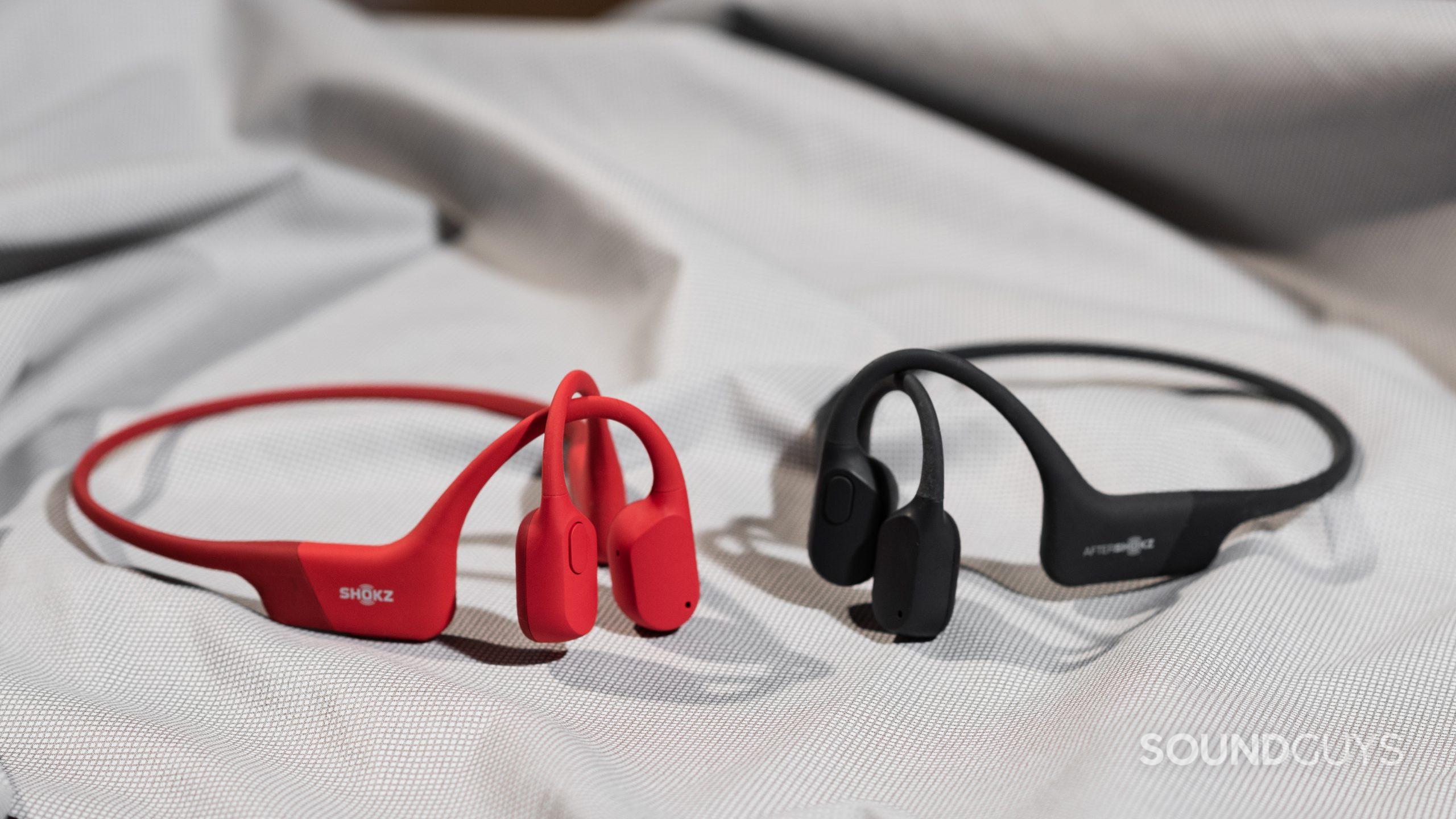
You get a 10-meter wireless range thanks to Bluetooth 5.1 with this Shokz headset. The OpenRun only support the SBC Bluetooth codec, which doesn’t send high-quality audio to any device. This lack of AAC and aptX support doesn’t matter though, since auditory masking will nullify any benefit that those higher bit rate codecs offer. A bone conduction headset could support all of the high-quality codecs available, and it still wouldn’t sound as good as a pair of earbuds or headphones that block out the external world.
Interestingly, the OpenRun does have Bluetooth multipoint for simultaneous connections to two source devices, making it a fine option for productivity.
To enable multipoint connectivity on the OpenRun, follow these directions:
- Start with OpenRun powered off.
- Press the volume up button until the voice assistant says “pairing.” Wait for the LED to flash red and blue.
- Press and hold the multi-function and volume up buttons for 3 seconds. The voice will say, “Multipoint enabled.”
- Open your phone’s Bluetooth menu and select “OpenRun by Shokz.” The voice prompt will say, “Connected.”
- Turn the OpenRun off.
- Re-enter the pairing process. Press the volume up button until the voice assistant says “pairing.” Wait for the LED to flash red and blue.
- Open your phone’s Bluetooth menu and select “OpenRun by Shokz.” The voice prompt will say, “Connected.”
- Turn the OpenRun off.
- Turn the OpenRun on. It is now connected to both source devices.
When you want to disable Bluetooth multipoint, press and hold the multi-function and volume up buttons for 3 seconds. The voice prompt will say, “Multipoint disabled.”
How long does the battery last on the Shokz OpenRun?
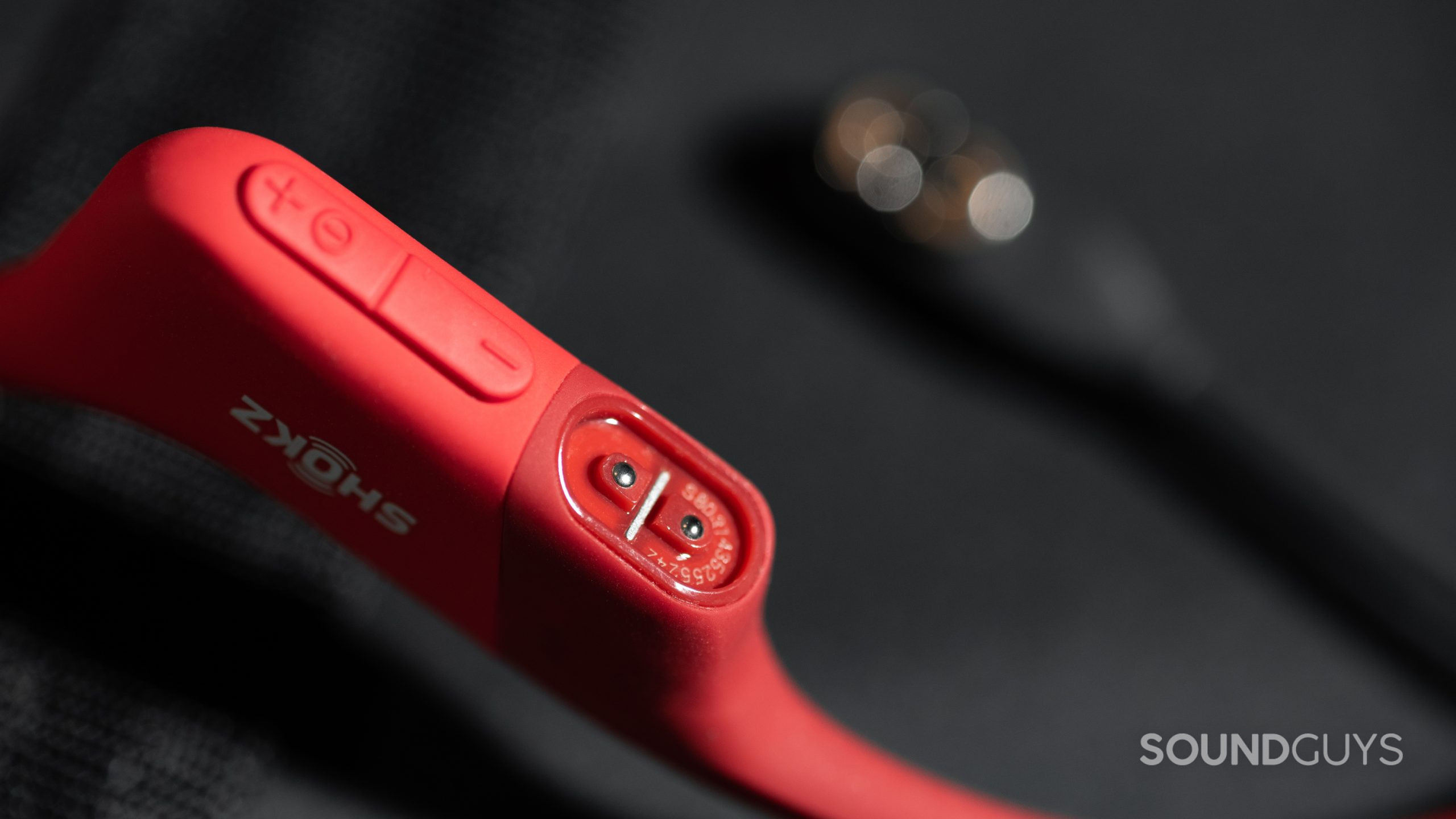
Shokz claims you can get up to 8 hours of battery life from the OpenRun’s 160mAh lithium-polymer battery, and my time with the headset supports this. To charge the OpenRun, just attach the proprietary magnetic cable to the two-pin connector on the headset and wait 90 minutes for a full cycle. When you’re in a rush, you can charge the headset for 10 minutes and enjoy 90 minutes of playback. You get 10 days of standby which is pretty good too.
The LED lights up when the headphones are charging to denote battery status. A red light means it’s charging, and a blue light means it’s fully charged. When the LED flashes at a two-second interval, the battery is low.
Do the Shokz OpenRun block out noise?
One of the main selling points of the Shokz OpenRun is that they don’t block out background noise. The fact that you can hear your surroundings clearly while wearing the OpenRun is a feature. Those who want headphones that silence their surroundings should focus on noise canceling headphones or standard workout earbuds.
Hold up, something’s missing:
This article’s frequency response is absent from this review because our Bruel & Kjaer 5128 test fixture cannot accurately measure the headset’s frequency response. The isolation chart is absent because, well, the headphones don’t do anything to block out sound and they’re not supposed to.
How do the Shokz OpenRun sound?
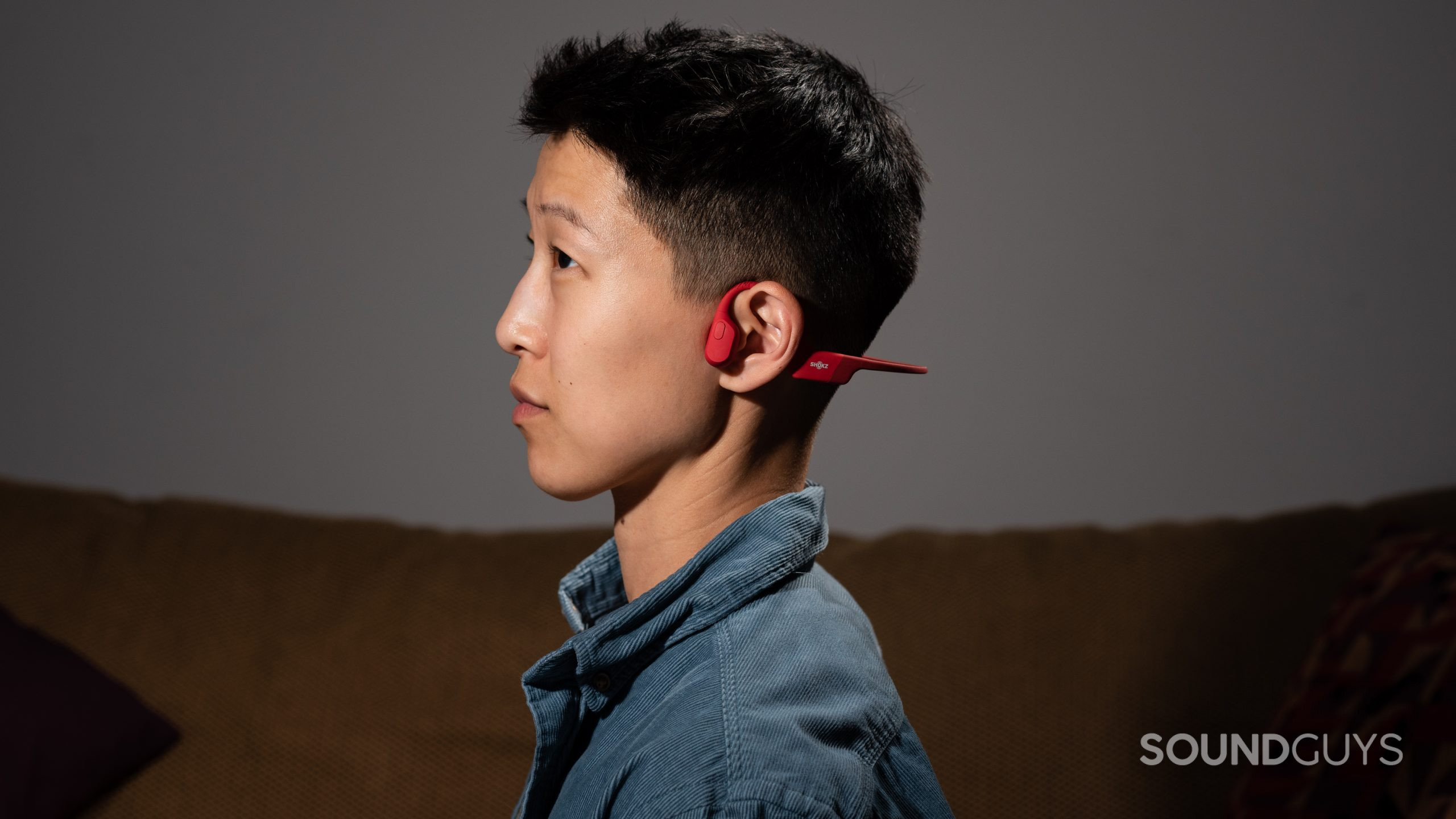
The Shokz OpenRun sound good for a pair of bone conduction headphones and uses PremiumPitch 2.0+. This means the transducers are angled at a more ergonomic angle against the cheekbones relative to headsets without this tech. You also get louder volume and bass outputs and minimized vibration intensity. Even with PremiumPitch 2.0+, the OpenRun have a frequency response that reproduces virtually no sub-bass due to the fit. You’ll still hear bass, midrange, and treble, but this skull-vibrating headset won’t satisfy bass heads.
Lows, mids, and highs
In the song 17 by The Greeting Committee, the kick drum during the intro is all too quiet compared to the individually picked guitar notes. Once Addie Sartino’s vocals and the rest of the instruments come in at 0:09, the percussive elements of the song become very hard to hear unless I strain for them. Sartino’s vocals come through as the clearest element of the song, and this is particularly apparent during the chorus at 1:54. While Sartino’s vocals sound great in this section, the cymbal hits are much quieter than they sound through my Shure AONIC 50 and Drop x Sennheiser HD 6XX headphones. Background harmonies are audible through the left channel but also very quiet in this chorus.
Again, the sound quality is highly subject to change depending on how you place the OpenRun on your skull and whether or not you move your jaw while wearing it. No matter how I place or displace the headphones, vocals tend to come through with the greatest clarity. If you’re a big fan of audiobooks or podcasts and want to listen while keeping an ear on the real world, you may grow to really enjoy the OpenRun’s frequency response.
When pressing the volume up/down buttons simultaneously, the EQ will cycle through “vocal booster mode” and “standard mode.” The Shokz app only supports the OpenRun Pro, so there’s no way to create a custom EQ with a proprietary app. If you’re dedicated, you can check out some third-party EQ apps, though.
Can you use the Shokz OpenRun for phone calls?
Yes, you can use the Shokz OpenRun for phone calls, but the microphone quality isn’t very good. It transmits a lot of background noise to the person on the other line, which could annoy them should you decide to talk and walk on a windy day. When you call from a quiet environment, voice quality is acceptable. Take a listen to our audio sample below.
Shokz OpenRun microphone demo (Non-standardized):
How does this microphone sound to you?
Should you buy the Shokz OpenRun?
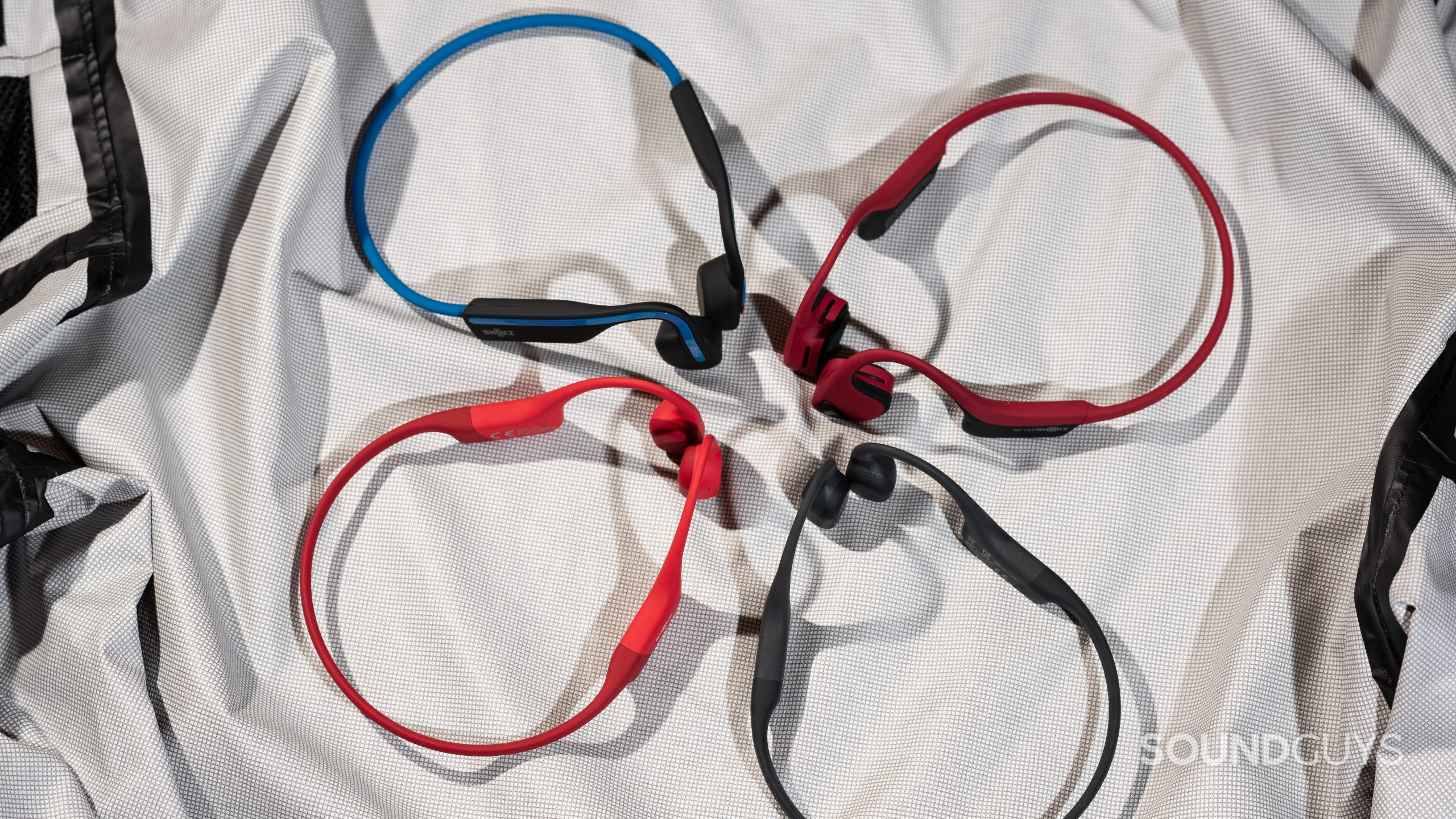
Anyone who wants a pair of wireless headphones that will keep them attuned to their surroundings will appreciate the design and build of the Shokz OpenRun. While some listeners may not like how the sound quality changes with various jaw movements (e.g., chewing), this is still one of the best sounding bone conduction headsets available.
We don’t fault you for taking issue with some of the OpenRun’s shortcomings, like the proprietary charging method and limited feature set. If you’re an average listener who just wants a pair of earbuds or headphones and doesn’t find any utility in bone conduction, there are cheaper headsets with more features to choose from.

How do the OpenRun compare to the Shokz OpenRun Pro?
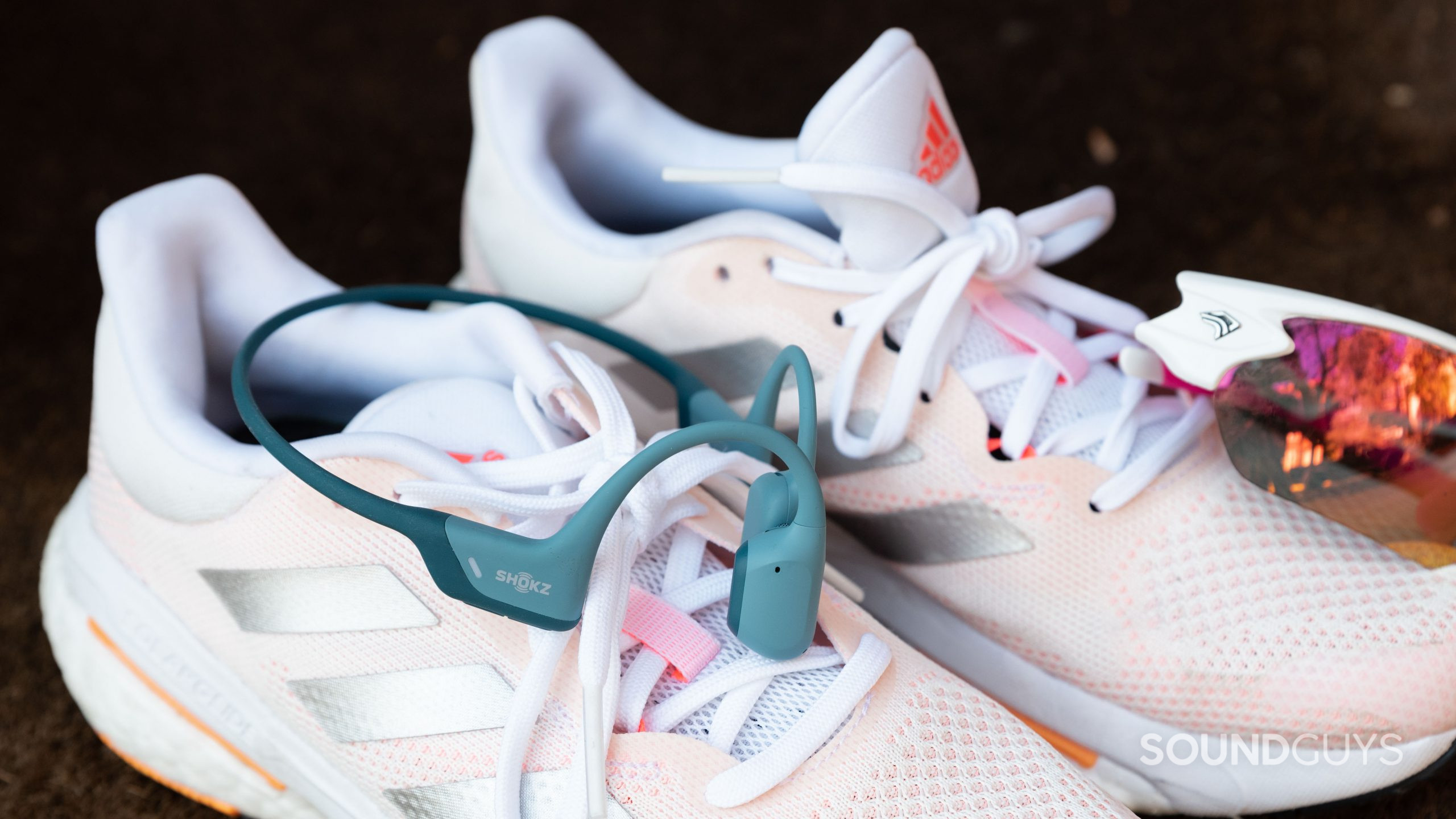
For the best bone conduction headphones you can buy, we recommend the Shokz OpenRun Pro, which costs $179 at Amazon. The OpenRun Pro use 9th-generation bone conduction technology and a more advanced PremiumPitch 2.0+. With this newer technology, the OpenRun Pro reproduce slightly louder bass than the standard model and keep audio output more consistent when the headset is slightly out of place.
You get a better 10-hour battery life from the OpenRun Pro than the OpenRun’s 8-hour battery life. No matter which headset you get, you’re stuck with the proprietary 2-pin charging cable, but at least both headsets support fast charging. Interstingly, the more affordable OpenRun are more durable (IP67) than the OpenRun Pro (IP55).
The AfterShokz Aeropex are a few years older than the OpenRun and use Bluetooth 5.0 instead of 5.1. You get other features like fast charging when you buy the newer, rebranded Shokz OpenRun. The OpenRun also come in a mini size for very small heads. The standard OpenRun size come in black, blue, grey, and red, which are the same color options as the Aeropex.
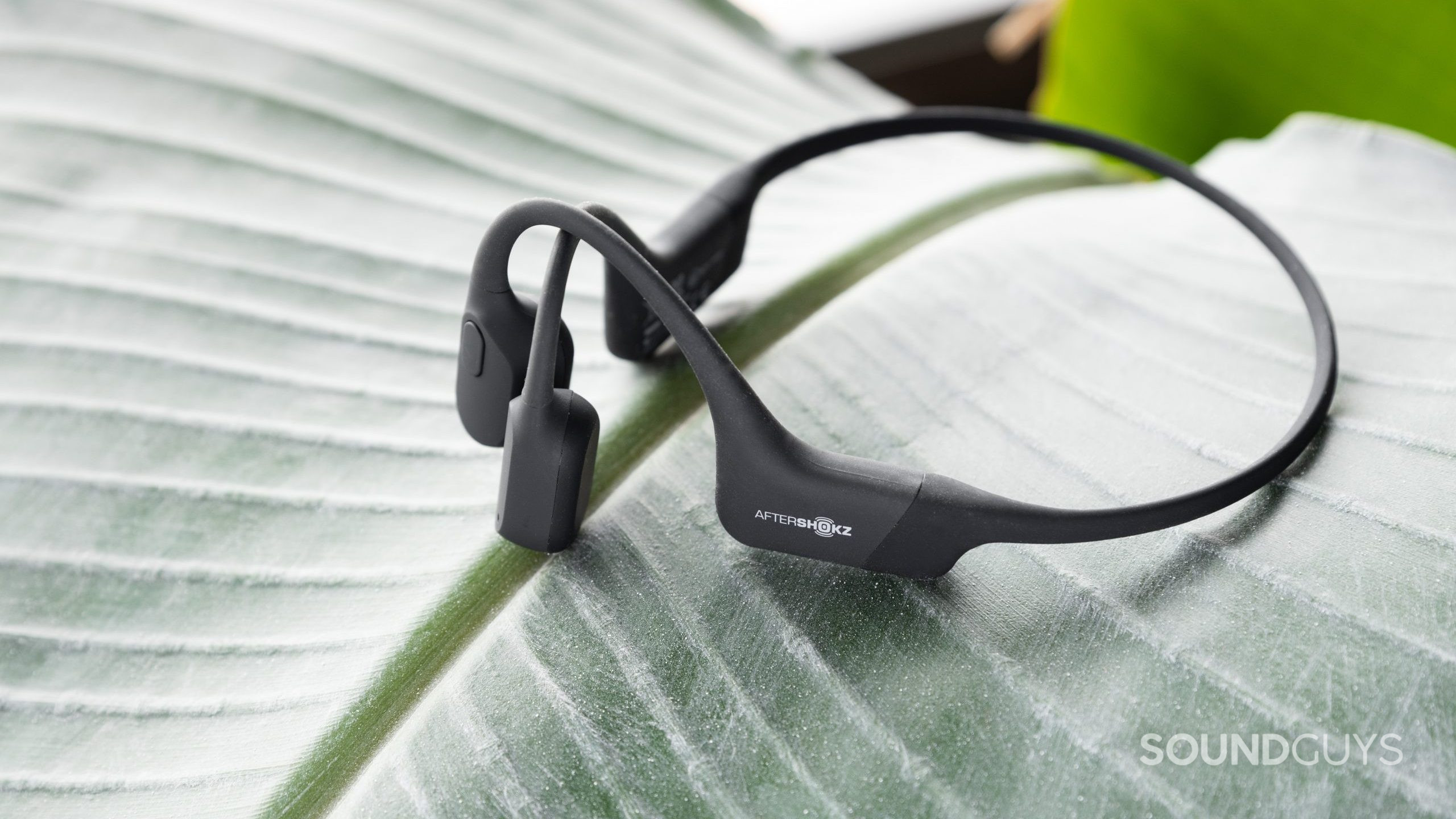
Both the Aeropex and OpenRun merit IP67 durability ratings and weigh just 26g. You get eighth-generation bone conduction technology with PremiumPitch 2.0+ regardless of which headset you buy. Interestingly, the Aeropex include more accessories like a silicone carrying pouch, ear plugs, sport belt, and two charging cables. The drawstring pouch that Shokz provides with the OpenRun may not look as cool, but it’s less likely to rip like the Aeropex pouch.
These headsets are almost identical, and if it really boils down to it, we recommend whichever one you can find on sale. Currently, the Aeropex cost $99 at Amazon.
What should you get instead of the Shokz OpenRun?
If you want to stick with bone conduction headphones but aren’t ready to drop $129 on your headset, consider the Shokz OpenMove instead. These headphones cost $79 at Amazon and use the more modern USB-C charging port rather than Shokz’ proprietary connector. Battery life isn’t as good with the OpenMove as on the OpenRun, but the buttons are easier to distinguish from one another, which is important for those who wear gloves in cold climes. You sacrifice durability with the IP55-rated OpenMove, but this should be good enough for most people.
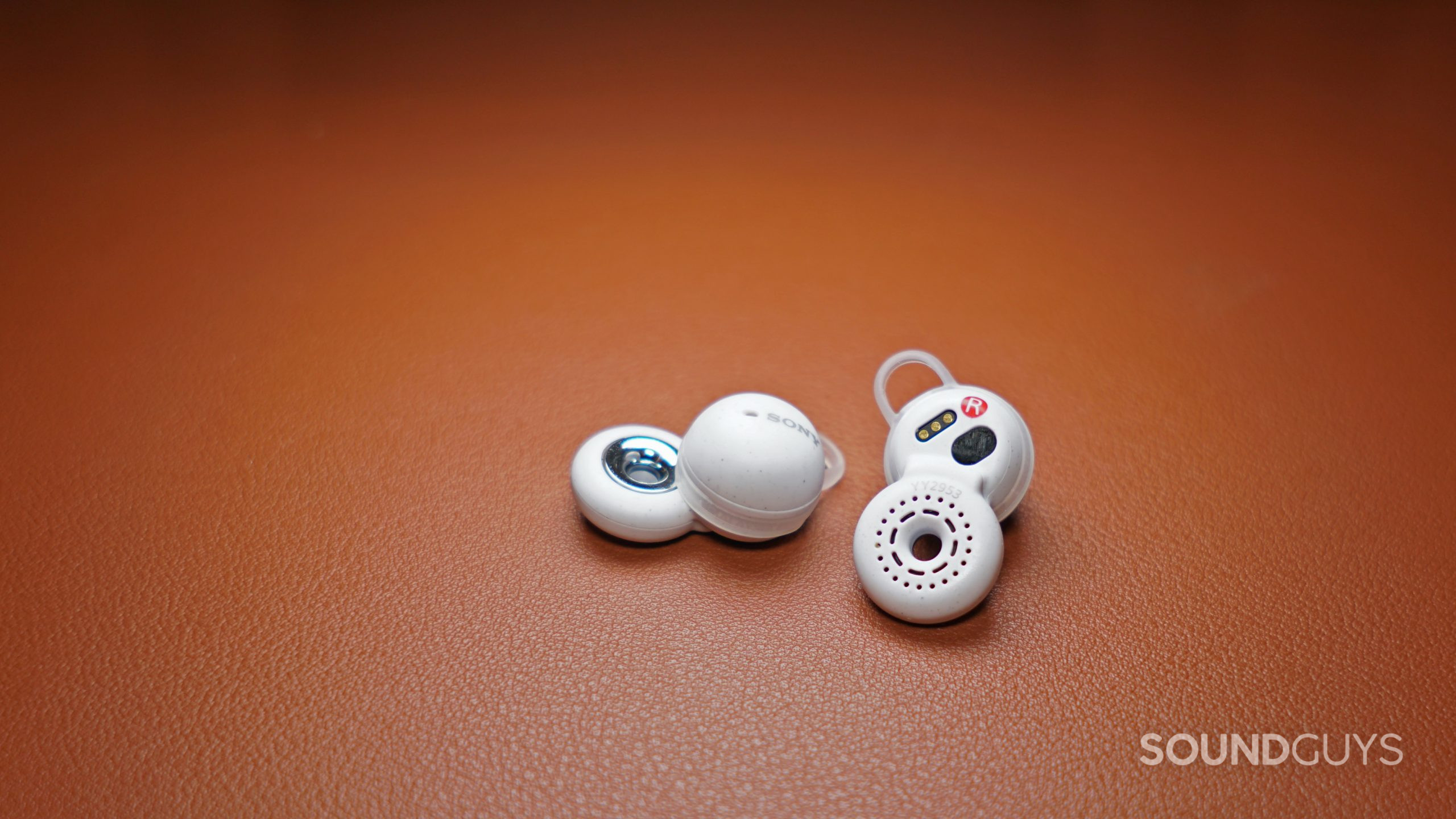
If you came all this way and decided that bone conduction headphones aren’t for you, you should check out the best open-ear headphones and earbuds. The Sony LinkBuds WF-L900 are a strong alternative. These earbuds from Sony fit like your traditional buds and rest in your outer ear. A donut hole cutout keeps your ear canals open to your surroundings. This way, you get better sound than bone conduction and the benefits of a more secure fit. Generally, they cost a bit more than Shokz’ headsets ($178 at Amazon).
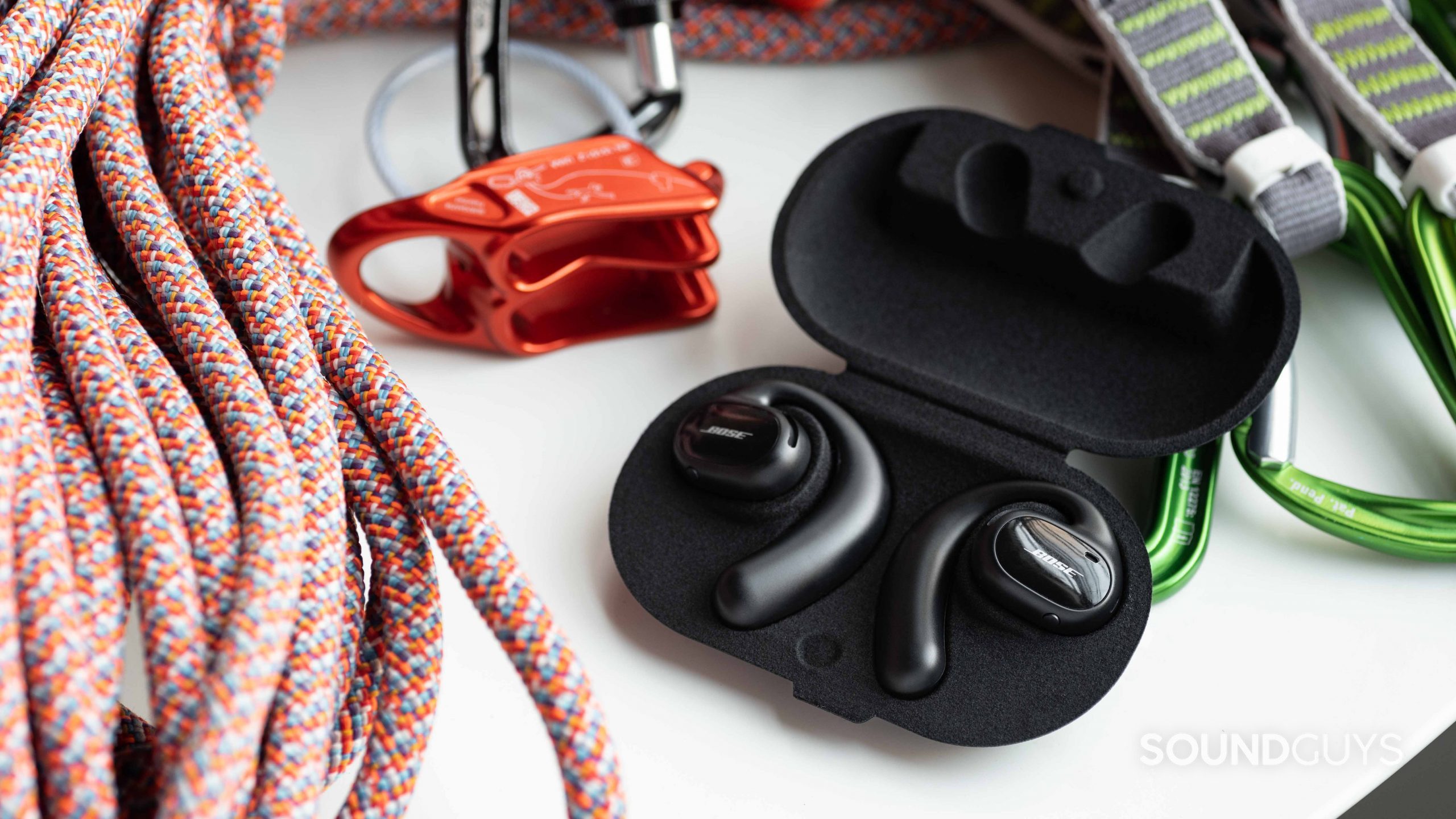
The Bose Sport Open Earbuds may be more for you if you don’t want anything to come close to your ear canals. These Bose buds sit on your ear, and a speaker fires sound down your ear canals. Like Sony’s earphones, Bose’s buds have just the typical IPX4 rating. One thing we like about Bose’s wireless earbuds, like the Sport Open and traditional Sport Earbuds, is that you can access updates through the mobile app. Unfortunately, the Sport Open Earbuds use a proprietary charging cradle which is a hassle. You’ll pay on the product’s website for these buds.
You can also consider the latest open-ear model from Bose, the Bose Ultra Open Earbuds, $299 at Amazon. At that price though, the Bose Ultra Open Earbuds are more of a statement piece than practical value-buy.
Frequently asked questions about the Shokz OpenRun
Yes, on December 28, 2021, AfterShokz renamed itself to Shokz. Shokz changed its name on its 10-year anniversary to lead into the next decade with a simplified and easier-to-share message than the former name “AfterShokz.” With this name change, came a revamped logo to better illustrate the bone conduction technology.
To reset the OpenRun, follow these steps:
- Start with the headset powered off.
- Press and hold the volume up button until the voice prompt says, “pairing.” The LED indicator will flash red and blue.
- Press and hold the multi-function, volume up, and volume down buttons simultaneously for 5 seconds until you hear two beeps, or feel vibrations.
- Turn the OpenRun off.
The OpenRun is now reset and can be re-paired to your device.
No, if you are a swimmer, you should check out the Shokz OpenSwim or Shokz OpenSwim Pro instead
Thank you for being part of our community. Read our Comment Policy before posting.